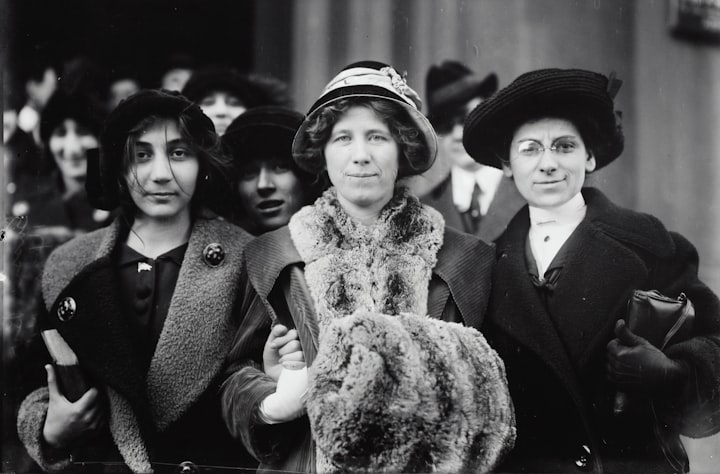The Paradox of Flexible Routines
Juggling sports practice and teaching kids responsibility

We live like fish swimming in a world of uncertainty, where routines teach us to follow a path toward building skills. I call them the highways of life, keeping us on track and pumped up at a certain speed. However, from any highway, you may choose to exit and change course or just take a break.
To what extent can routines be rigid or flexible?
As long as you can manage and maintain your sanity, both for own your well-being and that of your children, it’s acceptable. The crucial factor here is flexibility.
Looking at it from a mother’s perspective, do after-school activities represent an added challenge or a crucial component of our children’s growth that we should embrace?
In my view, it boils down to ensuring we prioritize our self-care, allowing us to provide love and patience from a place of abundance (ideally overflowing, though we often settle for having our glass more than half full).
Kids and routines — our experience
Having routines in our family life is incredibly beneficial for many reasons.
As a mother, I find comfort and empowerment in routines. I’ve come to realize that routines are prone to change and that life is full of surprises. Therapy was crucial to this development because I was usually constrained by old ideas and time constraints. Through therapy, I’ve learned that change is not only acceptable but also beneficial, even if it appears to be disturbing at first.
Reflecting on my own usual experiences, I’ve discovered that when children participate in both school and after-school sports activities, they frequently feel a sense of stability and empowerment. Swimming, for example, not only boosts their self-esteem but also improves their confidence with each new technique they master.
Additionally, observing their growth and development fills my motherly heart with immense pride and joy as I watch them thrive. I literally squealed with excitement when I saw my eldest being promoted to deep-water swimming. Watching him glide through the water with the grace of a shark, sleek and confident in his technique, was truly exhilarating.
Our middle child was selected for athletics. My husband and I had a hunch that this sport might be perfect for him, given his boundless energy and constant jumping over obstacles, running, and riding bikes or scooters. Our hearts swelled with pride when our intuition was validated, and he was the only one in his class chosen to join the district athletics team.
It may appear to be overpowering at times, and it is. However, we are excited about supporting their development and allowing them to pursue their interests. Our children are naturally inclined to try new things and are really active.
On the other hand, we realize the value of relaxation and downtime. That’s why we often keep our weekends free for some much-needed relaxation, but if we’re in the mood, we can always find enjoyable outdoor activities or visit museums on rainy days.
Health and well-being are paramount
Engaging in sports activities after school is like giving our kids' bodies a refreshing boost. It’s not just about staying fit; there is a mix of benefits that enrich our lives.
The rhythmic beat of a soccer match or the graceful dance of swimming strokes not only builds physical strength but also cultivates mental resilience. I see this development week after week, we keep going and we keep growing separately and together as a family.
Our children learn the art of discipline, teamwork, and perseverance, lessons that echo through life’s challenges. As they chase a ball or sprint on the track, they’re improving their health and endurance, and with stronger hearts and minds, they're ready to conquer the world.
As parents, we encourage them to play, for in these sporty after-school sessions, they’re not only shaping their bodies but also their future well-being.
A day filled with active lessons and movement sets the stage for a peaceful night’s sleep at home. When children engage in sports and physical activities during the day, bedtime becomes a breeze. They simply close their eyes and drift into slumber, leaving us parents with some precious quiet moments to unwind.
These peaceful interludes allow us to discuss the day’s events without constant interruptions. It’s not just parents who benefit; children need plenty of sleep, especially during the early hours, to support their healthy development. So let them play, sleep, and dream, for it’s in these moments that their bodies and minds grow stronger.
Creating and sticking to routines may involve some initial work, but the benefits for parents are substantial. Routines provide us with a sense of organization and control in our lives. This leads to less stress and worry, except for when something unexpected disturbs the logistics of the day.
Consistency in our daily schedules also boosts our confidence as parents, making it simpler to manage daily duties and lessening tensions, such as the annual debate about what to have for dinner on pizza night. While we don’t schedule our meals ahead of time, we do organize our days around our children’s after-school activities, which usually end around 5 or 6 p.m., depending on the day. These rituals help us keep our family life in balance and harmony.
What about flexibility?
We sometimes need a break, or one of us falls sick. So automatically, as a family of 5, we need to either reschedule our activities or make a change.
Here comes the concept of flexible routines, and I am not sure if it exists or if I have just invented it. These flexible routines are a paradoxical but valuable aspect of parenting. They offer both structure and adaptability, allowing us to navigate the unpredictable journey of raising children while providing stability. These routines act as a compass, guiding us through the complexities of family life, ensuring our children’s well-being, and allowing us to embrace the spontaneity that parenthood often brings.
As a matter of fact, we are a spontaneous bunch, and we love to just get into the car and go for a sudden photo session if our photographer friend comes up with some flower field idea. This just proves how life is a lot more than school and after-school sports activities.
We may choose to world school by traveling to some faraway place (we went on a trip to Portugal all five of us) or hiking in the forests of Hungary on the Blue Trail.
***
I hope you liked hearing about our personal experiences with after-school activities and how they relate to flexible routines.
- What do you think of kids having routines, and attending sports after school? Is or was it beneficial in your case?
- Did or would you do it differently?
- What about no activities at all and just letting them get bored?
(Letting them get bored sometimes works for us on the weekends, but we’d rather go to the forest or to a playground where they can consume their energy.)
***I originally published this story on Medium.***
Thank you for reading! Hearts, pledges and tips are always welcome, and your support is very much appreciated.
You could also buy me a coffee or a tea and/or let me know your ideas in the comments section.
About the Creator
Gabriela Trofin-Tatár
Full Stack Developer in the making and mother of 3 littles. Curious, bookaholic and travel addict. I also write on Medium and Substack: https://medium.com/@chicachiflada & https://chicachiflada.substack.com/






Comments
There are no comments for this story
Be the first to respond and start the conversation.